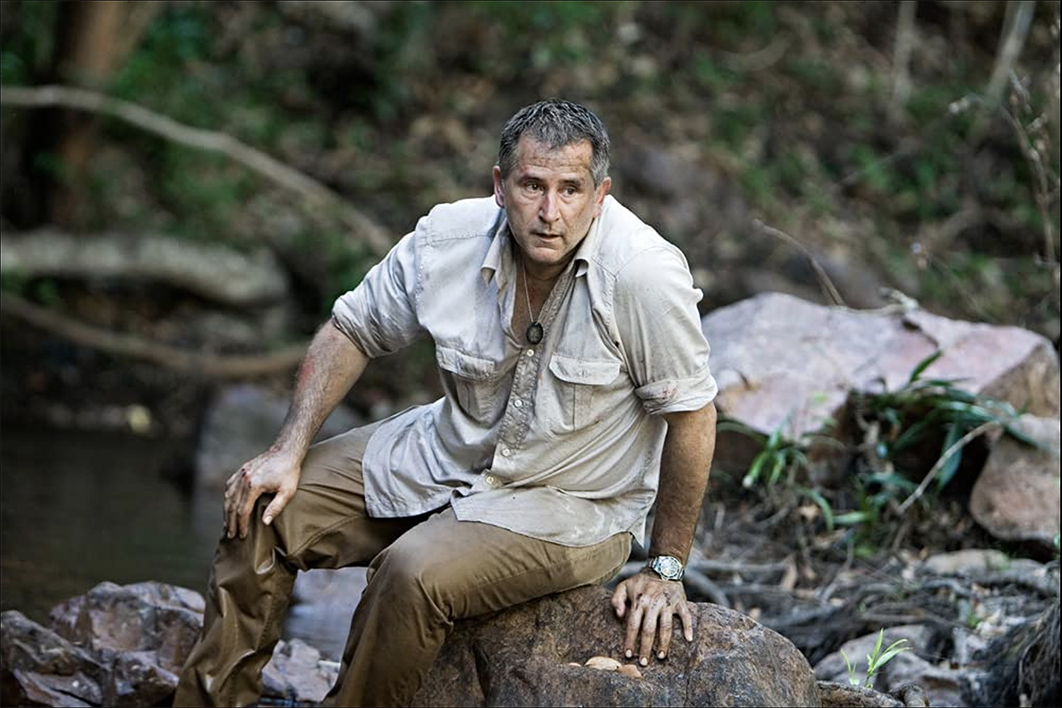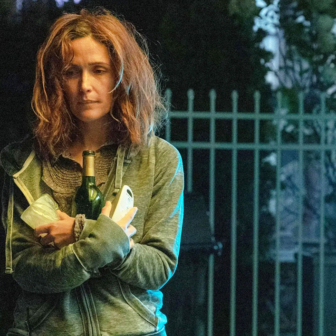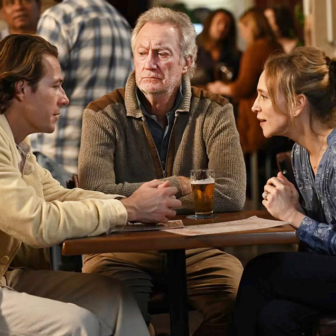WHAT FOLLOWS here isn’t so much review as comment on a film as public event. As directed by Robert Connolly, Balibo is a vivid, undismissable revival of collective memory, a convergence of argument around unhealed wounds and political conflict still unresolved after nearly thirty-five years. It is directed and edited with great energy, with several excellent performances and one great one, Anthony LaPaglia’s as Roger East. It is framed in recollection and testimony, and haunted throughout by the music of the place we’re in, Timor; it is at once beautiful, purposeful, and relentless.
In late 1975, while the second Whitlam government was falling apart, Indonesia invaded the tiny province which had been Portuguese Timor, the eastern half of an island long divided between the Portuguese and the Dutch. When the Dutch left, Indonesia, understanding itself as the successor state, took over West Timor. Like New Guinea, the island had been cut in two by imperial manoeuvres in which the inhabitants’ interests were taken as irrelevant.
In October 1975, five journalists from the commercial channels Nine and Seven (Greg Shackleton, Gary Cunningham, Brian Peters, Malcolm Rennie and Tony Stewart) moved west from Dili to the tiny village of Balibo, determined to get film of the invasion as it happened. They were unarmed; when escape was clearly impossible, they raised their hands in surrender and announced themselves as Australian journalists. The Indonesian troops killed them, regardless; they were both shot and stabbed. There are several competing versions of the crucial event; in this one, the bodies were incinerated on the same day, a great tangle of filmed information burning with them.
A few weeks later a sixth journalist, the older freelance Roger East, set out to find out what had happened to his colleagues. The film tracks him on a (fictional) journey on which he and the young José Ramos-Horta support each other, and also fight and argue fiercely over their priorities. Ramos-Horta, having resolved to go to the United Nations and tell the world, tries to get East away as the Indonesian occupation takes hold in Dili; East, seeing himself by then as the last communicator left standing, won’t go. He is executed by the Indonesians on the wharf at Dili.
One major part of the journalistic obsession is with getting the real story at close quarters; that’s what drove the Balibo Five, and in Greg Shackleton’s legendary final broadcast – superbly reprised here by Damon Gameau as Shackleton – they succeeded. Along with that, there’s always an issue of solidarity, and it’s lived out here in Roger East’s pursuit. In all six journalists, and with all the young men’s suicidal romanticism about filming under fire, individuality is subordinate; there are no parts here for a Robert Redford.
The fictional elements – the shared jungle trek, the present-day witness called Juliana – are more than forgivable; they’re drama, concentrating history. LaPaglia’s struggle through the thick jungle takes the weathered older journalist’s side of it to an extreme; he flounders along, middle-aged, unfit, sweating, totally unheroic. Juliana (Bea Viegas) stands in for thousands of invisible others; as a witness, she begins the story, and later on, with quiet power, shows the impossibility of ending it.
The questions left hanging principally concern the roles of successive Australian governments in failing to stand up to Indonesia and defend the Timorese, whose antecedents had helped Australians battle the Japanese in 1942. Collective memory is still at work. There are those who come out of the cinema properly angry, promising to write to their local member and the PM as well, demanding to know if and when the murderers of the Balibo Five will ever be called to account. There are others who aren’t really angry, just all choked up; the film is an emotional experience, to say the least. In the audience, too, there are the younger generations who emerge shocked by the weight of all they didn’t know about that time not so long ago, when their own parents were young.
Others again will draw breath, and then over coffee or dinner pursue a sober, detailed argument (let’s have some realpolitik, can we?) about how the Whitlam and Fraser governments couldn’t have done anything at the time but what they did. Both took the line that the East Timorese would do well enough to be part of Indonesia; if it weren’t for the facts of mass murder, rape and long-term persecution, they might have had an argument.
Other responses take the focus off politicians, and point the finger at the commercial TV organisations, Seven and Nine, and the way they didn’t look after their newsmen, while the ABC, by contrast, got Tony Maniaty out in time. Some say: but the journos are always asking for it; how about the Timorese? That’s the real question, and it is raised here, fiercely, by José Ramos-Horta.
One of the best things in the film is the way the Timorese people are always there: telling stories, singing, making the white men welcome because they promise to get the story out. The brown people are seen fleeing under fire when the Indonesian troops and paratroopers come in, and Dili is overwhelmed.
This film, more than other recent local works, is truly one of ours, a story known, half-forgotten, retrieved and given back. We have no choice now but to own it, and take it on. That means arguing with at least one of its claims. The opening credits tell us that the truth has been hidden up till now. But not so, not really. Journalists, academics and film makers have been on the job continually since the 70s; with books by Jill Jolliffe, James Dunn, Hamish McDonald and Des Ball (Death at Balibo, Lies in Canberra). Jonathan Holmes and the ABC took the matter up seriously in an edition of Foreign Correspondent of 20 October 1998.
There have been excellent documentaries too; Gil Scrine made a great one in Buried Alive, and Tom Zubrycki told José Ramos-Horta’s story in The Diplomat. Then, only two years ago, the coronial inquiry into the death of Brian Peters set off a fresh media pursuit. Our political leaders, in concert with the Indonesians, have stuck to the lie that the Five were killed in crossfire. The coroner’s findings exploded that lie for good, and we are now told that the whole matter is somewhere on the agenda of the federal police.
One journalist outstandingly has worked to make sure that East Timor couldn’t be evaded. Jill Jolliffe’s Balibo takes up and expands her earlier book Cover-Up. It is comprehensive and compelling; the film, having used it as a major source, sends us back to it. Jolliffe began reporting from Timor at the time, in 1975; now Balibo draws together more than three decades of committed investigation and writing, taking us not only into the Balibo tragedy and through it, but on after that, with the journalists’ families, to the coroner’s court in Glebe, to the present. This book is up there with the great Neal Ascherson’s work on Poland, and I can’t say more than that. •





